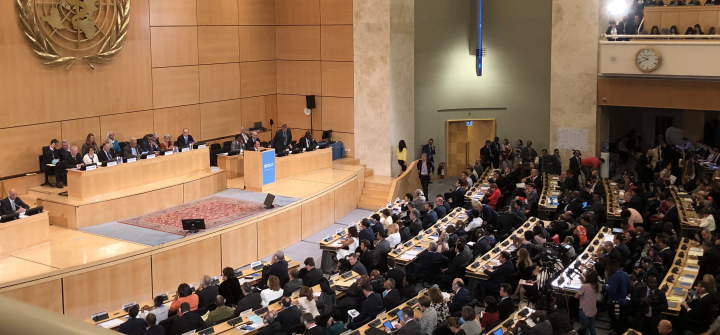The 2023 World Health Assembly: A New Playbook for Health Emergencies?
When they gather at the World Health Assembly in Geneva on May 21, representatives from 194 member states will face the usual bulky agenda thick with administrative reports and resolutions.
But 2 issues will dominate the discussions and have profound impacts. In addition to reviewing a path-breaking way to fund the perennially cash-strapped WHO, country representatives will evaluate the rewriting process for the pandemic response playbook.
‘A Duty to Those Lost’
With an estimated 20 million deaths due to COVID-19, countries are eager address the multiple lessons learned from the pandemic. Widely acknowledged failures in preparedness and response (such as poor international coordination and inequitable access to vaccines and treatments) have created a political appetite for change.
“The painful lessons of the past three years must not go to waste,” said WHO Director-General Tedros Adhanom Ghebreyesus said in a May 12 statement. “We have a duty to those we have lost, and to those who will come after us, to make serious and permanent changes to the global health security architecture to keep future generations safer from epidemics, pandemics and other health emergencies.”
At this year’s WHA, country representatives will review the progress toward the new rules that will ultimately lead to the establishment of a pandemic accord. Tedros describes it as “a generational agreement among countries to work in cooperation—not in competition—to face shared threats with a shared response.”
It’s a stirring call to action, but countries continue to disagree on the details.
A lightning rod in the negotiations is intellectual property—deciding whether preserving the rights and the benefits to developers of a new product will trump public health interests. Precious Matsoso, co-chair of the Intergovernmental Negotiating Body, a working group established by WHO member states to negotiate a new instrument, framed the challenge this way on May 4: “What is it that would help to stimulate innovation and what is it that will facilitate access so that you address both access and innovation at same time.”
A Second Track
The pandemic accord negotiations coincide with negotiations on a separate legal instrument that covers health emergencies: the International Health Regulations (2005).
The IHR are mostly seen as technical rules for disease surveillance, and negotiations are underway about making targeted amendments that could expand the IHR’s scope to also include equity considerations and other issues. The pandemic accord, on the other hand, is seen as a broader instrument that could also consider a host of other issues including intellectual property and One Health issues, for example.
These 2-track negotiations, often involving the same diplomats, have sapped time, resources, and capacities of WHO member states in Geneva and capitals around the world as countries venture deeper into negotiations. One major challenge for the IHR revision: Scores of countries have proposed 300+ amendments to the IHR (2005).
Surveillance, prevention, preparedness, and intellectual property have dominated forums of both these discussions. Also in the works are efforts to establish a new multilateral mechanism dedicated to global health that would cover accessing information on pathogens and sharing the resulting benefits.
Both the Working Group on the amendments to the IHR and the Intergovernmental Negotiating Body leading the 2 processes will meet in early June 2023 in a joint session to discuss some of the tricky issues dominating negotiations.
For the moment, both these processes have a tight deadline of May 2024 for consideration and adoption by the 77th World Health Assembly.
Priti Patnaik is the founding editor of Geneva Health Files, a weekly investigative newsletter that tracks power and politics in global health. She is based in Geneva.
Ed. Note: This article is part of Global Health NOW’s Local Reporting Initiative, made possible through the generous support of loyal GHN readers.
Join the 50,000+ subscribers in over 170 countries who rely on Global Health NOW summaries and exclusive articles for the latest public health news. Sign up for our free weekday newsletter, and please share the link with friends and colleagues.
World Health Assembly on May 21, 2018. Brian W. Simpson




